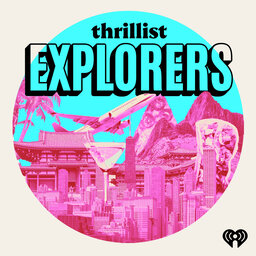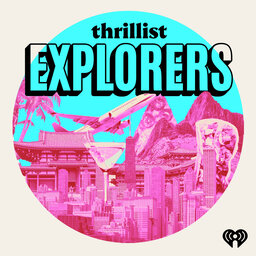How the Legendary Helen Thayer Fought Polar Bears in the North Pole, Escaped a Firing Squad in the Sahara, and Walked Across Death Valley at Age 80.
Helen Thayer was the first woman to travel solo to the magnetic North Pole. She walked across both the Sahara and Gobi deserts, kayaked down the Amazon, and trekked 200+ miles through Death Valley in her 80s. Along the way, she fought off polar bears, lived alongside wolves, escaped a rebel firing squad, survived an attack by killer bees, and managed to outlast a nasty case of food poisoning in Death Valley. And chances are, you've never even heard of her. In this episode, host Wil Fulton is joined by the legendary explorer, who shares her stories and delivers inspiration that can apply to all aspects of life (she also tells us how to fight off a polar bear, too). Special guests include Tania Aebi and Emma Svensson.
Learn more about your ad-choices at https://www.iheartpodcastnetwork.com
In 1 playlist(s)
Thrillist Explorers
Travel the world from the comfort of your headphones. New episodes every week. We want to hear your …Social links
Follow podcast
Recent clips

SEASON FINALE: Finding Cheap Tix to Europe, Underrated Summer Trips, and Why Your Next Flight Might Be on… a Bus
42:04

Our All-Time Favorite Food (and Booze) Stories
41:45

A Private Eye’s Guide to Los Angeles
30:54
 Thrillist Explorers
Thrillist Explorers